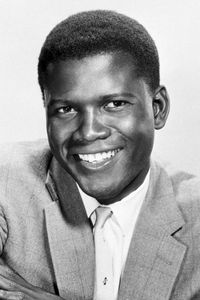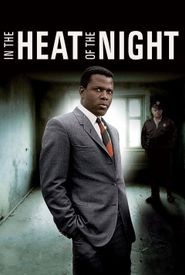Sidney Poitier was born prematurely in Miami, Florida, to parents Evelyn Outten and Reginald James Poitier, who were visiting from Cat Island, Bahamas, where he would later claim as his birthplace. Growing up in poverty as the son of farmers, Sidney's father also worked as a taxi driver in Nassau, Bahamas. Despite his humble beginnings, Sidney had little formal education and was sent to Miami at the age of 15 to live with his brother, in an effort to steer him away from a life of delinquency.
In the United States, Sidney was shocked by the stark racial divide that existed, a reality that was vastly different from the predominantly African-descent society he was familiar with in the Bahamas. At the age of 18, Sidney made his way to New York City, where he struggled to make ends meet, taking on menial jobs and sleeping in a bus terminal toilet.
Sidney's brief stint in the Army, where he worked at a veterans' hospital, was followed by more menial jobs in Harlem. However, it was his impulsive audition at the American Negro Theatre that would change the course of his life. Initially rejected, Sidney dedicated himself to improving his skills and overcoming his accent, and on his second attempt, he was accepted into the theatre company.
Spotted by a casting agent during rehearsal, Sidney landed a small role in the Broadway production of "Lysistrata," earning positive reviews. By the end of 1949, Sidney was faced with a choice between leading roles on stage and an offer to work in film. He chose the latter, making his screen debut in the 1950 film "No Way Out," where he played a doctor treating a white bigot.
Sidney's performance in "No Way Out" earned him recognition and led to more roles, although they were still less prominent than those given to white actors. However, seven years later, Sidney would land a series of roles that would catapult him into the category of leading man, a rare achievement for an African-American man at the time. One of these films, "The Defiant Ones," earned Sidney his first Academy Award nomination for Best Actor, and five years later, he would go on to win the Oscar for "Lilies of the Field," becoming the first African-American to win for a leading role.
Throughout his career, Sidney remained active on stage and screen, as well as in the burgeoning Civil Rights movement. His roles in "Guess Who's Coming to Dinner" and "To Sir, with Love" were landmark moments in breaking down social barriers between blacks and whites. Sidney's talent, conscience, integrity, and inherent likability placed him on equal footing with the white stars of the day.
In the 1970s, Sidney transitioned into directing and producing, achieving success in both areas. His legacy as a trailblazing actor, director, and producer continues to inspire generations of artists and activists alike.




























































































